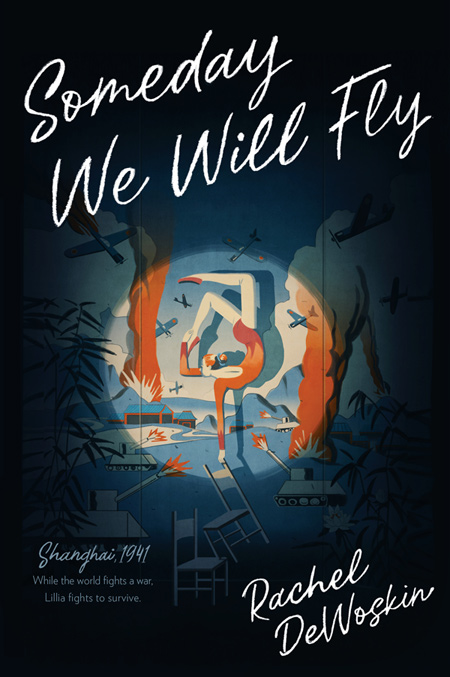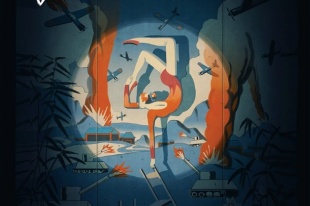Creating hope in a wartime city


A new novel explores life in Shanghai's Jewish settlement in the 1940s, Jocelyn Eikenburg reports.
A photo of three teenage Jewish boys on a table tennis team, wearing matching T-shirts with their school logo, are among some images of children at the Shanghai Jewish Refugees Museum that American author Rachel DeWoskin saw one summer, inspiring her new historical novel set in the 1940s in Shanghai's Hongkou Jewish settlement.
"There was so much evidence of how devoted these kids' community was to creating a sense of normalcy, giving the children a childhood, even though the context of an occupied city at war was excruciating," says DeWoskin.
"Many of the refugees had no idea where their family members were or whether they were OK. Many had fled Nazi-occupied Europe and landed in Shanghai, destitute and disoriented. Yet they created schools for their kids, ran camps, music lessons and table tennis teams. And shirts. I found those small insignia so moving, and the combination the photos evoked-of danger and resilienceto be worthy of literary exploration."
DeWoskin imagines this world through her character Lillia, a 15-year-old aerial acrobat from a circus family in Poland who flees in 1939 with her father and 1-year-old sister to Shanghai, where they struggle to survive as she wonders if her mother is still alive.
"Lillia is suddenly on her own for the first time in her life, and in a certain sense responsible for her sister, which is intense and complicated, especially given that she's in an unfamiliar city. But she finds her way, as kids so often do-with grit, grace and practical application of her skills, with warmth and by way of friendship. She figures out how to keep her hope alive even though she's also full of dread."





































